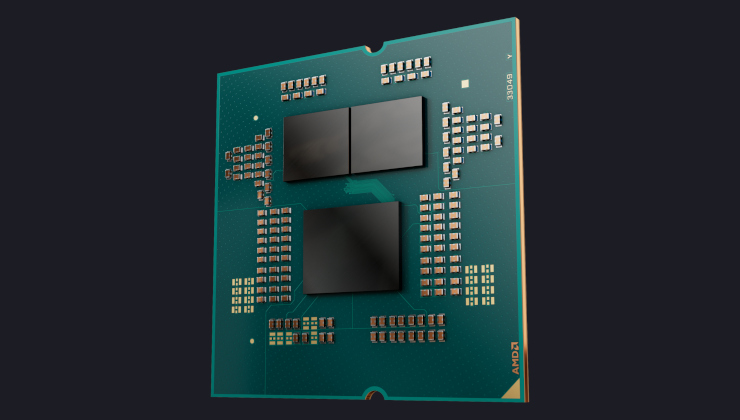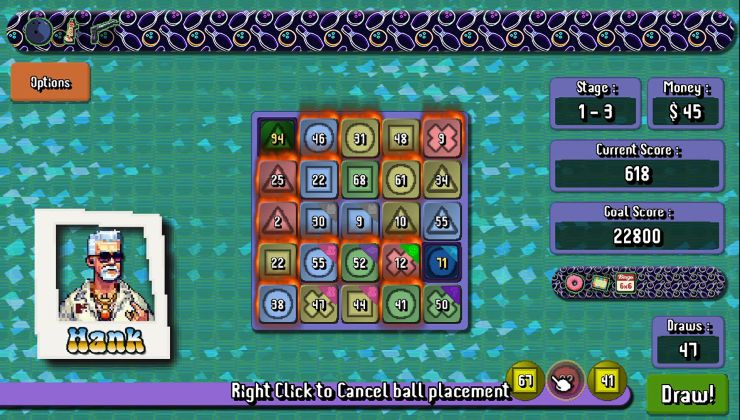Now and then the exclusive game discussion pops up, because someone thinks it would be a good idea to lock games to a platform. Here we go again.
This time the culprit is PCGamesN in an article titled "The Steam Deck is missing an important element – exclusives". Respectfully, I thoroughly disagree and think exclusive games are ludicrous and anti-consumer due to the very nature of them being exclusionary.
While their article touches on an important bit: games taking better advantage of the Steam Deck uniqueness directly, and personally I do think developers should spend a little more time ensuring gamepad support is top-quality at release, along with text and UI scaling at a minimum — exclusives are just bad and I don't want them on Steam Deck. Valve developers clearly feel similarly.
Here's my full reply on the subject:

Direct Link
If you can't currently watch the video above here's the gist of it:
The Steam Deck is built on an open platform, with tons of open source and Valve pays a ton of open source developers. It’s not locked to anything, has a full desktop mode and you can install stuff from other stores. Heck you can even throw Windows on it if you really want to.
The only reason for exclusives is to pull people away from other platforms and try to lock them in, exclusives are anti-consumer. Look at what Epic games do, it’s to pull people directly away from Steam. Sony does it with their exclusives to pull people away from Xbox, Microsoft is going to do it with Bethesda and Activision Blizzard to pull people away from PlayStation and you get the idea.
The Steam Deck presents some of the best elements of a PC as a platform being so open, in handheld form. Why the hell would we want to bring over some of the worst parts of traditional consoles to it?
Exclusives aren’t good for gamers, by their very nature they’re exclusionary. No one should want them or celebrate them. Games are a form of art, we should want more people to be able to appreciate them. Oh, you don’t have a Steam Deck or can’t afford one? Well that’s a shame you can’t play exclusive game X or Y ya a loser. Can you imagine that? Oh I can, fanboys can be really terrible and I don’t want to hear that about it.
What we should do is celebrate things like Microsoft, Sony and more being on Steam and putting previously exclusive games up for more people that way, not the opposite.
The Steam Deck is doing well too. We know from a good while ago it hit over a million shipped, and that’s well before the expansion into Asia. It doesn’t need exclusives. It already has a decent amount of power at an affordable price, along with a well established company backing it. Reviews are still flowing in from all angles across web articles and YouTube of more people getting it and singing its praises.
I can’t help but laugh in a way. Valve presents an open platform, and some come along and want something locked to it. Seems so senseless. It feels like console fanboy zealot level thinking.
Even crazier still is what the Steam Deck represents: an extension of the PC platform. Why would we want a Steam Deck exclusive game? Part of the point is a portable library that you can swap between your PC and your Steam Deck for. It kills such a wonderful part of what makes it great. While that aspect of it is not something everyone will make use of as not everyone has a gaming PC, it is a selling point still and a good one, it would ruin a whole lot of goodwill I imagine for Valve too. Even their little example game Aperture Desk Job works outside of the Steam Deck.
So no, the Steam Deck doesn’t need exclusives or any special games. I’ll disagree until the end of time with anyone trying to get others to entertain such an absurd idea.
What it does need is different: A little more attention from developers would be welcome for the uniqueness it offers but let’s not go down the exclusive road. Ensuring gamepad controls on PC work properly at release, testing on smaller screen sizes and resolutions for text clarity, along with text and UI scaling controls at minimum is what we should want and what reviewers need to look at — the kinds of things that make a game go from rough to great on Steam Deck and improve them for everyone on PC too regardless of Linux or Windows there. I’ve lost count of the amount of times I found text on a PC game too small with no way to scale it up, it’s worse again for the Steam Deck. I want to see a lot more attention there.
The Steam Deck and the open nature of it helped me fall in love with gaming all over again. I have games from Steam, Epic, GOG, emulators, cloud gaming and more on mine. Let’s not try and break apart the very foundation it’s been built upon.
Anyway that’s what I think, what do you think?
I'm always amazed at CEOs or board of directors that does not understand shit about what they manage and then complain about the market, piracy, other platforms monopoly or whatever…
A polished turd in a box with a golden key is still crap.
their article touches on an important bit: games taking better advantage of the Steam Deck uniqueness directlyI'm not an evangelist for exclusives but This is a MASSIVE argument for, though. Not only in regards to screen Resolution and gamepad support, but even more importantly the chipsets and processing power.
When software is tailor made for one specific hardware, it enables the developers to write a lot more effective code. This is why the consoles can perform as good as they do. Just look at the PlayStation and the incredibly smooth and visually stunning experiences they can deliver there year after year on hardware that's nothing compared to a modern pc. The difference is staggering and a very strong demonstration of how exclusive code CAN perform.
And who doesn't want the most out of the hardware they have purchased?
Again, it's easy to argue against exclusivity, but there's also weighty arguments FOR.
Last edited by Beamboom on 28 Dec 2022 at 12:32 pm UTC
Like many my age (approaching my 40s now), I fondly remember the 16-bit era because it was highly competitive, but also interesting - "exclusives" back then only existed in the form of which manufacturer's in-house titles you preferred, and most major third-party games were on most platforms and sometimes differed in interesting ways; The YouTube series [Console Wars](https://www.youtube.com/@ConsoleWars) is a good look at how this applied to the SNES and Mega Drive, though sadly it never touches on the UK market, which was much broader thanks to also including various 8-bit and 16-bit home micros.
I'm not a fan of the modern definition of "exclusives", which is just moneyhatting in order to prevent content from appearing on all platforms, and I wouldn't like to see it mar the Steam Deck or the broader Linux-gaming landscape.
Last edited by Pengling on 28 Dec 2022 at 12:34 pm UTC
Last edited by Brokatt on 28 Dec 2022 at 12:51 pm UTC
Quoting: BeamboomThere's been plenty of arguments time and time again on how portable code not meant for a single platform, has actually been a big net benefit to a game. I've covered plenty of them here. Add to that the long history of PC games having settings to tweak for lower or higher powered machines - I don't think the argument has much merit of locking to a single platform for any kind of performance benefit that you suggest. Optimization doesn't mean it needs to be exclusive. Optimization at the lower end can benefit the higher end too, and generally it does.their article touches on an important bit: games taking better advantage of the Steam Deck uniqueness directlyI'm not an evangelist for exclusives but This is a MASSIVE argument for, though. Not only in regards to screen Resolution and gamepad support, but even more importantly the chipsets and processing power.
When software is tailor made for one specific hardware, it enables the developers to write a lot more effective code. This is why the consoles can perform as good as they do. Just look at the PlayStation and the incredibly smooth and visually stunning experiences they can deliver there year after year on hardware that's nothing compared to a modern pc. The difference is staggering and a very strong demonstration of how exclusive code CAN perform.
And who doesn't want the most out of the hardware they have purchased?
Again, it's easy to argue against exclusivity, but there's also weighty arguments FOR.
Last edited by DefaultX-od on 28 Dec 2022 at 1:09 pm UTC
I think that right now Linux users have other issues because we slowly start to loose companies that built the success of this platform. Alternative Games disappeared, and nobody noticed it. They ported many great games to Linux, and they have been doing that for 11 years.
https://www.gamingonlinux.com/forum/topic/5535/
Now, we can really forget about Frozenbyte games for Linux. The Linux team from IGIOS founded this company, and a few employees from previous company ported two first games for Linux that used NVIDIA PhysX in 2009. They are responsible for The Humble Frozenbyte Bundle because they ported most of these games to Linux and Mac.
https://www.youtube.com/watch?v=ZaM6LHC_uXA
Ii will be fun to have few popular indie games exclusively for Linux, and it takes some time when it happens. We had Voltley, which was exclusive game for Linux, and I regret that I didn't bought it. The author of this game is unknown, and we don't get this game on Steam. This is one of the reasons why Runesoft, and LGP couldn't publish their games on Steam. I hope that Valve chenge their mind about this issue, and allow publishing separate games for Linux.
Last edited by gbudny on 28 Dec 2022 at 2:12 pm UTC
And at the same time, i use Steam a lot, so in a sense, many of my games are Steam’s exclusive ? But, they are not, as many devs can also sell the same game at the same date, in other shops like itchio, Humble, or directly to their website.
A real exclusive, that, i hate.
- games that you can play only on Linux
- games ported by a Linux publisher
We don't have these options with Steam, which is weird.
Quoting: BeamboomI'm not an evangelist for exclusives but This is a MASSIVE argument for, though. Not only in regards to screen Resolution and gamepad support, but even more importantly the chipsets and processing power.Not really.
When software is tailor made for one specific hardware, it enables the developers to write a lot more effective code. This is why the consoles can perform as good as they do. Just look at the PlayStation and the incredibly smooth and visually stunning experiences they can deliver there year after year on hardware that's nothing compared to a modern pc. The difference is staggering and a very strong demonstration of how exclusive code CAN perform.
And who doesn't want the most out of the hardware they have purchased?
Again, it's easy to argue against exclusivity, but there's also weighty arguments FOR.
In order for any of this to be even remotely helpful or useful, Steam Deck would need a development environment for it that could rival the one for Switch, Xbox and PS. Everything from specific libraries over debug dev kits to platform-owner-side-quality-control.
That environment doesn't exist.
Existing engines would need specific optimizations for the Deck.
That optimization doesn't exist.
Oh, and exclusives that people would actually want to play.
On a handheld device that does not have any existing customer base with many years of "trust" and "loyalty" unlike other console platforms.
Good luck with that.
In other words, Valve would have to spend a ton of money to provide an environment even remotely comparable to that of Microsoft's, Sony's or Nintendo's.
And then spend another ton on developers so that they actually develop the exclusives.
Just to have a fraction of a chance at that strategy.
Sounds like a horrible idea to me.
It also has to be said that the "smooth and visually stunning experience" on consoles is bought by severely limiting framerates on most such titles. I find 60+ fps a lot more important for the experience than visual detail.
It's not that I couldn't imagine some dev that is in love with the Deck for some reason creating a game specifically made for the Deck's somewhat unique input system.
Or that Valve would fund such a thing.
Might be fun, but if that ever happens, it'll be a gigantic rarity and the dev will get a lot of flak if they don't also enable it on normal PC platforms.
Last edited by TheSHEEEP on 28 Dec 2022 at 2:56 pm UTC
Quoting: PenglingI favour portables and am a Nintendo ex-pat (they were the only console manufacturer still making games that I enjoyed - then they stopped and/or went off in strange directions with the ones I liked, so I bailed :tongue:). The reason I returned to the PC-gaming space for the first time since 4GB HDDs were huge and you could still buy big-box games from Toys 'R' Us and Electronics Boutique UK is precisely because, regardless of your preferred OS, it offers more choice. Much more.I also have fond memories of that time and the early 3D era. It was really a time were no one had a clear idea of what they were doing so they just tried a bunch of shit to see what worked :) However some things I don't miss. Games back then was an insanely expensive hobby. Because it was so expensive most could only afford one console, which led to tribes of fans forming defending their choice, while in reality missing out on great games all thanks to exclusives. The Console War was an effect of anti-consumer practices.
Like many my age (approaching my 40s now), I fondly remember the 16-bit era because it was highly competitive, but also interesting - "exclusives" back then only existed in the form of which manufacturer's in-house titles you preferred, and most major third-party games were on most platforms and sometimes differed in interesting ways; The YouTube series [Console Wars](https://www.youtube.com/@ConsoleWars) is a good look at how this applied to the SNES and Mega Drive, though sadly it never touches on the UK market, which was much broader thanks to also including various 8-bit and 16-bit home micros.
I'm not a fan of the modern definition of "exclusives", which is just moneyhatting in order to prevent content from appearing on all platforms, and I wouldn't like to see it mar the Steam Deck or the broader Linux-gaming landscape.
Today you could buy a Steam Deck which is excellent value and only buy games on sale. With PC being almost like neutral ground a lot of games are released to one console plus PC. This in combination with emulators and the ability to tinker leads to a platform that teenage me would have been up in arms over. It's more approachable and cheaper than a PC while still being flexible and open. When Valve eventually does a wide release of SteamOS 3.X it will lower the bar of entry to DIY PC's and HTPC's. It could lead to a renewed interest in a hobby that's dying out. Or maybe that's just an old fools wishes and it's smart phones, games streaming tablets and predatory pay2win crap that are the future.
Quoting: TheSHEEEPIt's not that I couldn't imagine some dev that is in love with the Deck for some reason creating a game specifically made for the Deck's somewhat unique input system.I want to see bundles with games for:
Or that Valve would fund such a thing.
Might be fun, but if that ever happens, it'll be a gigantic rarity and the dev will get a lot of flak if they don't also enable it on normal PC platforms.
- Windows/Linux/Mac
- Windows/Mac
- Windows/Linux
- Linux/Mac
etc.
Valve should stop require rights to publishing a Windows version if a company want to sell only a Linux version.
Last edited by gbudny on 28 Dec 2022 at 3:05 pm UTC
... Part of the point is a portable library that you can swap between your PC and your Steam Deck...There. You have it. That's the exclusivity Valve is putting forward: Play anywhere, on any device, however you feel it.
That is exclusive to the PC and everyone else is trying to catch up. Valve's understanding of the PC platform is leagues in front of anybody else and they made a businness out of it.
OTOH, if I have a PC and a Steam game comes out exclusively for the Deck, I would be pissed. But ofc, Valve could add extra features in a non-exclusive, that only work on a Deck. I'd be fine with that.














 How to setup OpenMW for modern Morrowind on Linux / SteamOS and Steam Deck
How to setup OpenMW for modern Morrowind on Linux / SteamOS and Steam Deck How to install Hollow Knight: Silksong mods on Linux, SteamOS and Steam Deck
How to install Hollow Knight: Silksong mods on Linux, SteamOS and Steam Deck